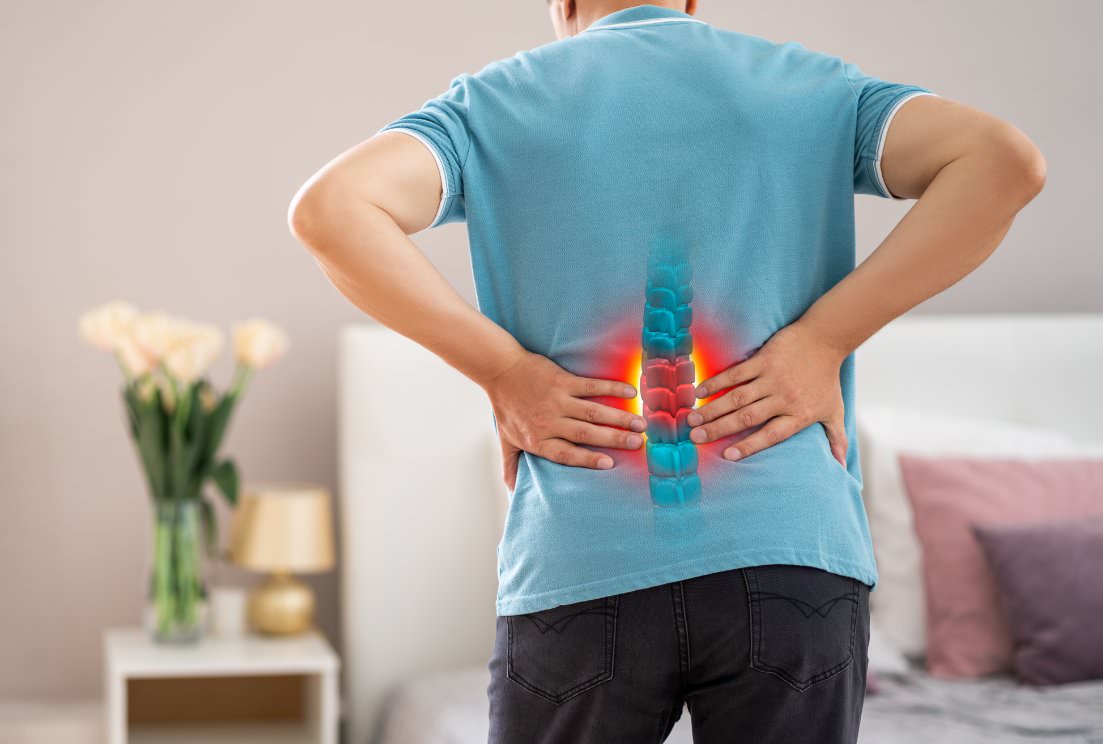Learn about common spinal diseases and discover effective back pain treatments to help alleviate discomfort and improve your quality of life.
Orthopedic Specialists of SW Florida offer expert care and advanced treatments for spinal conditions. They prioritize personalized care, ensuring each patient receives the right treatment for their needs.
If you’re experiencing spinal discomfort or have concerns about your spinal health, book an appointment with the Orthopedic Specialists of SW Florida for comprehensive care.
Common Spinal Disorders
Spinal health can be compromised by a variety of disorders, each with specific causes and treatments. Here are some of the most common spinal disorders:
1. Herniated Disc
A herniated disc, also known as a slipped or ruptured disc, occurs when the soft inner gel of a spinal disc pushes through its tough outer layer. This can irritate nearby nerves, leading to pain, numbness, or weakness in an arm or leg. Causes often include aging, injuries, and repetitive movements.
Prevention:
- Maintain good posture.
- Exercise regularly to strengthen the back and core muscles.
- Avoid lifting heavy weights improperly.
Treatment:
- Physical therapy.
- Pain medications.
- In severe cases, surgical intervention.
2. Spinal Stenosis
Spinal stenosis is the narrowing of spaces within the spine, which can put pressure on the nerves traveling through the spine. It is commonly caused by wear-and-tear changes in the spine related to osteoarthritis and aging.
Prevention:
- Engage in regular exercise to maintain flexibility and strength.
- Avoid high-impact activities that can damage the spine.
Treatment:
- Non-surgical options such as physical therapy, medications, and injections.
- Surgery might be required to relieve severe nerve compression.
3. Scoliosis
Scoliosis is characterized by an abnormal sideways curvature of the spine. It often develops during the growth spurt just before puberty. While the cause of most scoliosis cases is unknown, it can sometimes result from conditions such as cerebral palsy or muscular dystrophy.
Prevention:
- Early detection through regular check-ups.
Treatment:
- Observation.
- Bracing.
- In severe cases, surgery to correct or control the curvature.
4. Osteoporosis
Osteoporosis is a condition that weakens bones, making them fragile and more likely to break. It often affects the vertebrae in the spine, causing severe back pain, loss of height, and a hunched posture.
Prevention:
- Maintain a diet rich in calcium and vitamin D.
- Engage in regular weight-bearing exercises.
- Avoid smoking and excessive alcohol consumption.
Treatment:
- Medications to strengthen bones.
- Lifestyle modifications.
- In severe cases, surgical interventions to stabilize the spine.
5. Sciatica
Sciatica refers to pain that radiates along the path of the sciatic nerve, which branches from your lower back through your hips and down each leg. It is usually caused by a herniated disc or bone spur that compresses part of the nerve.
Prevention:
- Engage in regular physical exercise.
- Use proper lifting techniques.
- Maintain a healthy weight.
Treatment:
- Physical therapy.
- Medications.
- In some cases, surgical interventions to alleviate nerve pressure.
Understanding these common spinal disorders and implementing preventive measures can significantly enhance spinal health and prevent debilitating pain and discomfort. Regular check-ups with healthcare providers, maintaining a healthy lifestyle, and early intervention are key to managing and preventing spinal disorders.
The Importance of Early Detection
Early detection of spinal disorders is crucial for effective treatment and prevention of further complications. Recognizing the initial symptoms can lead to timely intervention, which can significantly improve outcomes and quality of life. Here are some early signs to watch for and the importance of detecting these symptoms promptly:
- Persistent Back and Neck Pain: Continuous pain in the back or neck that doesn’t improve with rest can be a warning sign of spinal issues like herniated discs or spinal stenosis. Early detection allows for conservative treatments such as physical therapy to be more effective.
- Numbness or Tingling: Experiencing numbness or a tingling sensation in your extremities, particularly in the arms or legs, may indicate nerve compression or other spinal issues. Catching it early can prevent more serious nerve damage.
- Changes in Posture: A noticeable change in posture, such as a hunched back or uneven shoulders, may be an early sign of scoliosis or osteoporosis. Early diagnosis can lead to treatments that help manage and correct these conditions before they worsen.
- Muscle Weakness: Weakness in the muscles of your arms or legs can be a symptom of conditions like sciatica or other nerve compression syndromes. Detecting these symptoms early can help prevent permanent muscle damage and weakness.
- Loss of Height: A gradual loss of height, along with a stooped posture, could indicate osteoporosis. Early intervention can prevent further bone loss and fractures.
- Difficulty Moving: Reduced mobility or difficulty performing daily activities without pain can be a telltale sign of underlying spinal problems. Early management can help restore mobility and reduce pain.
The importance of early detection lies in the ability to manage and treat spinal disorders before they become severe. Early intervention can lead to better treatment outcomes, reduce the need for surgical procedures, and improve the overall quality of life. Regular check-ups with healthcare providers, especially when experiencing any of the symptoms mentioned above, are essential for maintaining spinal health. Advanced imaging techniques and diagnostic tools can help in the early diagnosis of spinal conditions, paving the way for timely and effective treatment plans.
Treatment Options
The physical therapists at Orthopedic Specialists of SW Florida are dedicated to restoring and preserving a patient’s ability to move safely and independently, aiming to enhance mobility and independence. Physical therapy, along with chiropractic care, is beneficial before surgery and can potentially help the patient avoid surgery altogether. Even if this conservative approach fails to relieve the patient’s pain, it is crucial in preparing them to be in the best physical state for surgery, which can speed up postoperative recovery.
Our services include:
- Physical therapy: Improving functionality through strength, mobility, fitness, flexibility, coordination, range of motion, and balance exercises.
- Occupational therapy: Helping patients regain or improve the skills required for daily living, fostering independence.
- Pain management: Ensuring you can participate fully in your rehabilitation without severe pain.
At Orthopedic Specialists of SW Florida, our physical, occupational, and hand therapists have extensive expertise in the muscles, joints, and bones of your body. Our physical therapists create treatment plans for conditions such as rotator cuff tears, shoulder dislocation, tennis elbow, golfer’s elbow, cervical pain, back pain, knee issues, and ankle/foot disorders. Regular assessments and personalized treatment plans by our physical therapists are crucial for improving your condition and overall quality of life.
Prioritize Your Spine Health Now!
Don’t let pain and discomfort hold you back any longer. At Orthopedic Specialists of SW Florida, our dedicated team of experts is ready to provide you with personalized care and advanced treatment options to improve your quality of life. Whether you’re dealing with chronic pain, recovering from an injury, or seeking preventive care, we’re here to help you every step of the way.
Take the first step towards a healthier, pain-free life by booking an appointment today. Your journey to better mobility and wellness starts here.


